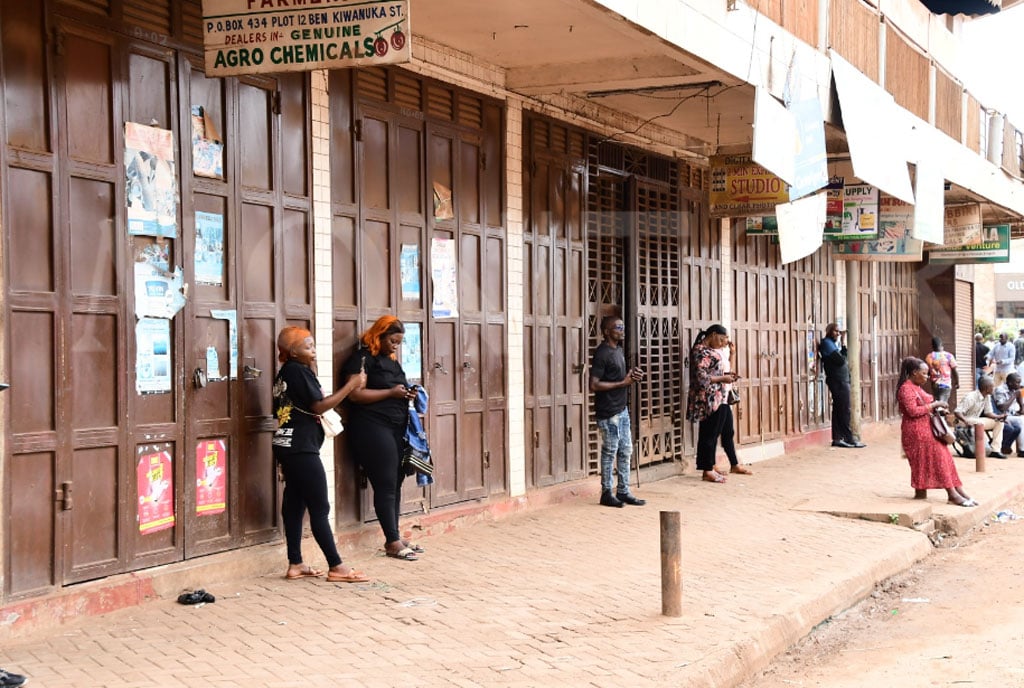Prime
Why are we even here if we can’t protect children?

Author, Benjamin Rukwengye. PHOTO/FILE.
What you need to know:
- We invest as little as we possibly can, only so that we can tick off a box. We don’t intervene when, where and how we are required to because there are no consequences for negligence. We move on from one tragedy to the next ...
I was watching a tour video of Finnish high schools, and heard an interesting comment from a teacher. When they got to the Home Economics classroom – right next to the Sewing room – she said, “Our intention is to teach them everything they might need to use later in life.”
It was a profound thing to say because my daytime work is premised on the knowledge that schools aren’t preparing learners for life and work. It got me envious for a bit, but grateful that I wasn’t Finnish because then I would probably be out of a job.
There is a telling image somewhere, of a crestfallen trader staring into space, as his stock got engulfed in the “Owino” market fire about 10 years or so ago. It is not hard to tell the kinds of chaotic anguish going on in his heart and mind, yet without ever going through a similar situation, you can’t exactly say that you know for sure.
If you took a moment just to think about it, you might remember where you were, when you first heard the horror of that chilling Kibwetere massacre in Kanungu, in 2000. You certainly remember getting shellshocked when news of the Budo Junior School fire filtered in, confirming that 20 children had been burnt to death.
You also don’t remember reading any of the official reports investigating those fires, even if commissions of inquiry were set up and facilitated to deliver the goods. If nothing else, then to give some sort of closure but also a window into how we can guard against the reoccurrence of such horrors.
This week, 12 children of Salama School of the Deaf and Blind in Mukono District died in a fire. Hideous. It is hard to imagine what their last moments must have felt like. The fright. The torture. The helplessness. It is hard to imagine the sorrow of the parents or find the right words to condole. These are the kinds of unfortunate events which in functional places, happen once and never again. They are also the kinds of unfortunate events which in Uganda, happen with the guarantee that they will happen again.
This paper reported this week that – according to Police – there have already been all 19 school fire incidents this year. Can you imagine that?! It also had a roll of fires going back to 2008, which shows you that perhaps, even the passage of time hasn’t changed much. Why are we incapable of learning? At the very least, how are we so desensitized and unable to feel and get prompted to act by the spasms that live with us?
Those concerned with these sorts of things will be in the media over the next few days and then disappear soon after. But like clockwork, they will return when another school fire breaks. Between that, it probably makes sense for us to talk about safeguarding and how we can make our schools safer.
Does anybody know if there are standardized fire safety protocols for schools? It can’t be that hard to pass these kinds of policies and ensure that they are implemented. How about training the staff on emergency response and things like first and fast aid? Again, the costs couldn’t possibly outweigh the value of life. We could even lump some of this stuff into the curriculum because, surely, it constitutes “everything they might need to use later in life.”
The reason we don’t do any or much of this stuff isn’t that we don’t think it is important. The reason investigations don’t get completed and reports gather dust in some nondescript backroom isn’t because we are unable to follow things through to their logical conclusion. It is because of how progressively, we have devalued life to a point where it is not worth protecting, preserving, and growing.
We invest as little as we possibly can, only so that we can tick off a box. We don’t intervene when, where and how we are required to because there are no consequences for negligence. We move on from one tragedy to the next because we know no better and have accepted the fatality of our miserable ending. That is why impunity and criminality thrive. That is why we always end up in the same shitshow, regardless of whichever direction we take. That’s the price we pay for dysfunction and brokenness.
Mr Rukwengye is the founder, Boundless Minds. @Rukwengye


